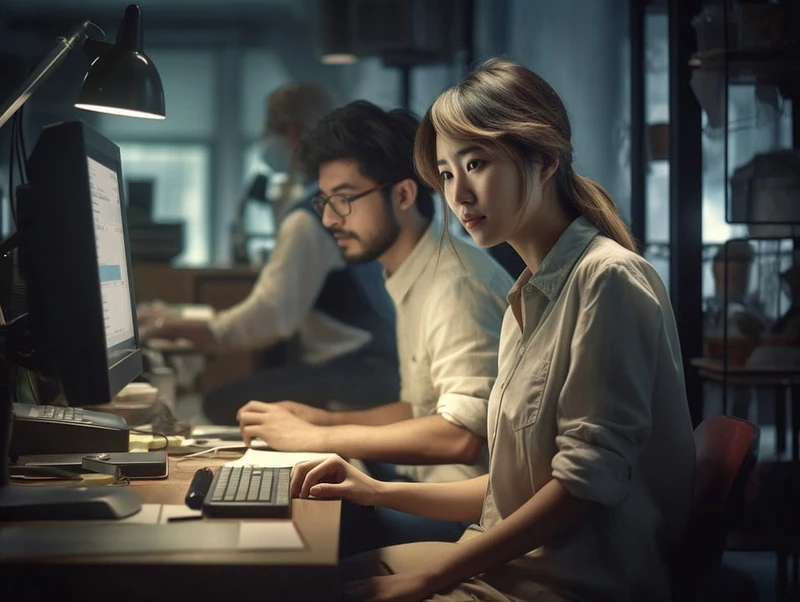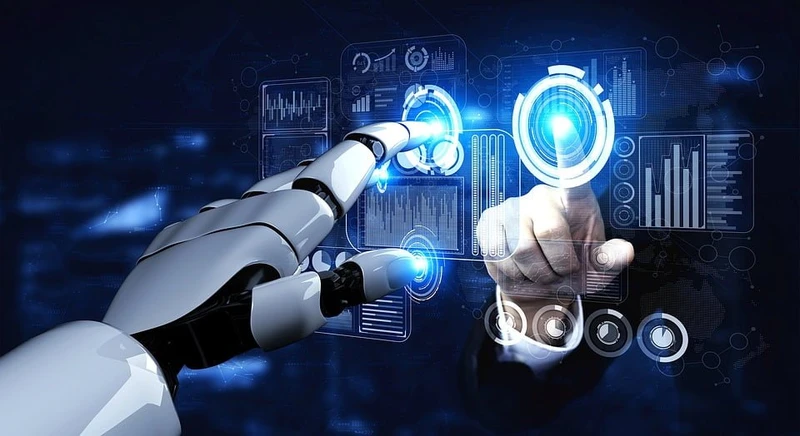The development of any innovative technologies instills fear in most people. However, scientists have become interested in why we think about robots rather than computers when pondering the question of who might take over the world.
Work phobia has always existed.
Dr. Andreas Sebulla, an associate professor at the Future of Work Institute at Flinders University, says that when computers first appeared, many people were afraid that this technology would take their jobs. Now, people are thinking the same way about the latest revolutionary changes in the development of robots and artificial intelligence.
At the Cosmos Science City forum dedicated to the “work of the future,” Mr. Sebulla noted that human society has determined which jobs are worthy of attention and which are considered low-value, despite the fact that some of these “low-value” positions are the hardest to undergo technological transformation.
“The rise of machines” is a terrifying prospect for humanity, but a common theme in science fiction films. However, over time, this perception has changed significantly. For example, while nuclear war once permeated public consciousness, we now consider climate change or AI robots that could bring about humanity’s demise as more likely threats.
Will robotophobia disappear if everyone has robots?
Dr. Sebulla says that computers have always been perceived as tools used by humans, while robots, on the contrary, have always been there to do something for humans. AI machines were created to perform tasks for people. However, the next generation of robots may become the ones to instruct humans on what they need to do.

However, Mr. Sebulla notes that over time humanity has changed its perception of computers. According to him, in an interview with the publication Cosmosmagazine In the 1990s, when user versions emerged, everyone was able to access them, and businesses began to use them, similar concerns arose as today regarding robots. Computers in the past were incredibly bulky, and there were only a few of them, but then they became a mass phenomenon available to everyone.
If something similar were to happen with robots – if they were in every home – would people worry less about machines encroaching on their jobs? Assuming the worst, what will we do when robots, artificial intelligence, or computers actually take over our work?
Collaboration with robots should be a priority.
According to Mr. Sebulli, people need to approach this issue from a perspective of collaboration. He says that consultations are the answer, as technologies are never neutral. It is up to individuals to decide what they want to do with technologies, which is why robots can be used in various ways.

So if you run a business and want to know whether this technology will positively impact employees, the only way to find out is to consult. Mr. Sebulla wants to change the stereotypical perception of work – terms like low-skilled, routine, and physical labor are misleading.
According to him, one of the most amazing jobs is that of a barista. It is a true art to perform such work properly, and yet it is completely undervalued. Or think about an Uber driver. Scientists cannot make autonomous vehicles drive without accidents or road blockages. This demonstrates how complex driving a car is. According to the researcher, these people do very complicated work, and usually do it very well, but we just don’t like to pay them.
